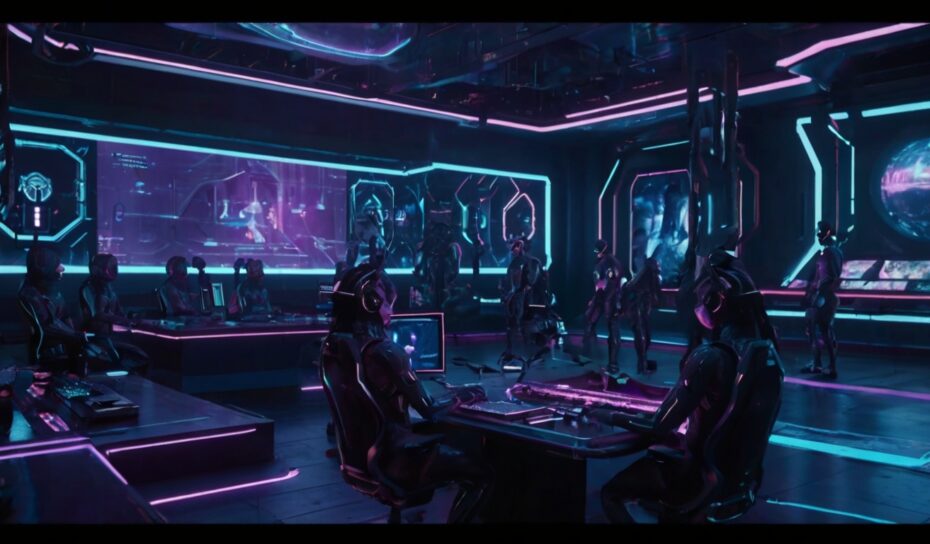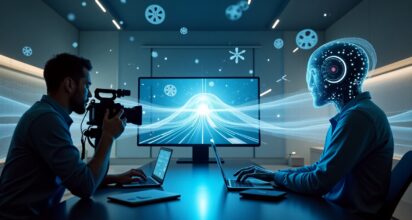AI in Entertainment and Gaming: Transforming the Future of Fun

The world of entertainment and gaming is undergoing a massive transformation, driven by the power of Artificial Intelligence (AI). From personalized movie recommendations to intelligent non-playable characters (NPCs) in games, AI is reshaping how we create, consume, and experience fun. In 2025 and beyond, AI will continue to blur the lines between technology and creativity, making entertainment more immersive, interactive, and intelligent.
How AI Is Changing Entertainment
1. Content Recommendations
AI algorithms analyze user behavior to offer personalized recommendations on platforms like Netflix, YouTube, and Spotify. These systems learn what you like — your favorite genres, artists, and topics — and tailor suggestions to your unique preferences. This leads to more engagement and satisfaction for users.
2. Automated Content Creation
AI tools are now capable of generating content, including music, scripts, visual effects, and even full videos. Tools like OpenAI’s Sora, Runway ML, and Lumen5 help creators produce professional-quality content in less time. AI-generated music and deepfake video technology are also gaining popularity in digital storytelling and marketing.
3. Virtual Influencers and Digital Humans
AI is behind the rise of virtual influencers like Lil Miquela — computer-generated personalities that interact with fans, promote brands, and create content on social media. These digital humans are powered by AI and can mimic realistic human behavior, expressions, and speech.
AI in the Gaming Industry
1. Smarter NPCs and Opponents
One of the biggest impacts of AI in gaming is the development of more intelligent NPCs. In older games, characters followed fixed patterns. But today’s AI-driven characters can adapt to player behavior, make decisions, and even learn from gameplay. This creates a more realistic and challenging gaming experience.
2. Procedural Content Generation
AI helps developers generate game environments, levels, and missions automatically. This is known as procedural generation and is used in games like Minecraft and No Man’s Sky. It saves time and enables games to offer infinite variety and replayability.
3. Voice and Emotion Recognition
Games are becoming more immersive thanks to AI that can detect a player’s voice tone, emotions, or reactions. Some games adjust their storylines and difficulty levels based on how a player feels, making gameplay more personal and engaging.
4. AI-Powered Game Testing
AI is also helping developers behind the scenes. Automated game testing bots can play through levels to find bugs or performance issues, saving developers countless hours of manual testing.
Benefits of AI in Entertainment and Gaming
- Faster Production: AI tools speed up creative workflows.
- Cost-Efficiency: Automating tasks reduces production costs.
- Enhanced Creativity: AI assists creators with idea generation, editing, and visual effects.
- Personalized Experiences: Users get content tailored to their likes and moods.
- More Immersive Gameplay: Games feel more alive, responsive, and unpredictable.
Challenges and Concerns
While AI brings many advantages, it also comes with challenges:
- Ethical concerns: Deepfakes and AI-generated content can spread misinformation.
- Job displacement: Automation may reduce demand for some human roles in media and design.
- Privacy issues: Collecting data for personalization must be done responsibly.
The Future of AI in Entertainment
Looking ahead, AI will become even more integrated into entertainment. We’ll see hyper-personalized streaming platforms, interactive storytelling powered by AI, and games that feel like living worlds. Generative AI could help players create their own characters, environments, and even narratives within games, turning gamers into co-creators.
Virtual reality (VR) and augmented reality (AR) combined with AI will bring about next-level immersion, where entertainment responds to your emotions and decisions in real time.







